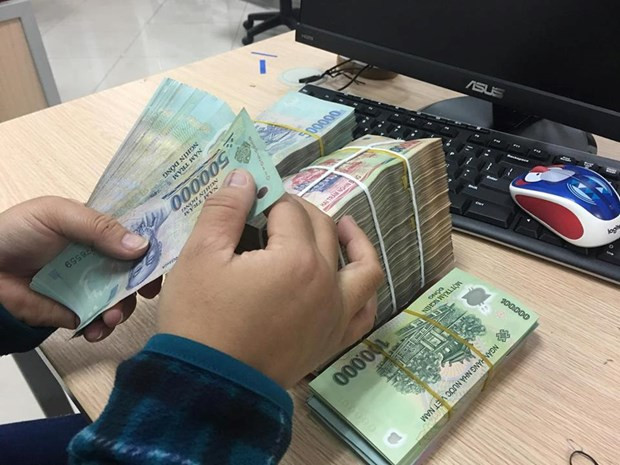Hanoi (VNA) – The State Bank of Vietnam (SBV) has requested credit institutions to enhance management to ensure their staff adhere to legal regulations and do not take part in “black credit” activities.
SBV Governor Le Minh Hung recently signed a decision to issue the banking sector’s plan of action to implement the Prime Minister’s Directive 12/CT-TTg, dated April 25, 2019, to help curb “black credit”.
According to this decision, the Governor assigned subordinate units of the SBV to coordinate with ministries, sectors and socio-economic organisations to help control “black credit”.
He asked departments and authorities to disseminate legal documents on bank credit provision mechanisms and policies, along with soft loan packages, to people of all social strata. They were also requested to propose policies to the Government to diversify forms of loans and banking services.
Agencies were tasked with developing financial companies and microfinance institutions nationwide to provide loans to meet people’s demand for capital, thus helping prevent loan sharking.
They need to continue mobilising as much idle capital from people as possible to optimise the economy’s strength. They will also have to boost scientific and technological application to develop lending services and online payment, while accelerating administrative reform and simplifying loan procedures so all people can easily access legal lending sources.
The departments and authorities were also told to work with relevant ministries and sectors to propose mechanisms and legal regulations to the Government, the Prime Minister and authorised agencies to help manage peer-to-peer and online lending.
According to the decision, the SBV Governor also requested managerial agencies to increase inspection, examination and monitoring of credit institutions to ensure the safety and efficiency of their operations, detect and deal with violations in a timely manner and hand over cases with criminal signs to investigation bodies for enquiry and settlement.
They were also asked to direct banks to ensure that their staff comply with legal regulations and do not take part in “black credit” activities, accelerate the response to investigation agencies’ request for financial verification, and provide information and documents to serve “black credit”-related probes when asked.
Regarding coordination with ministries, sectors and socio-political organisations, the Governor demanded departments, authorities and relevant units work with the Ministry of Justice, the Ministry of Finance, the Ministry of Public Security and related ministries and sectors to review and propose amendments to legal regulations on financial verification to address obstacles to the settlement of “black credit”-related criminal cases.
The agencies need to work with the Ministry of Education and Training to increase managing and educating students on legal regulations on borrowing and lending. They also need to coordinate with the People’s Committees of provinces and centrally-run cities to popularise information about soft loans and support policies of the State and localities so people can seek access to capital.
The central bank’s Governor also told them to cooperate with socio-political organisations to instruct social funds and microfinance programmes to register their activities with the SBV in line with the Prime Minister’s Decision No. 20/2017/QD-TTg, dated June 12, 2017. They were demanded to boost the implementation of microfinance programmes and projects, while further inspecting and monitoring the realisation of legal regulations on credit activities to ensure that people, especially those with disadvantages, can gain comprehensive access to financial services.
Under the direction of the SBV leader, the units have to make six-month and annual reports on their task performance and send them to the central bank’s Department of Credit for Economic Sectors, which will later summarise and submit the SBV’s task implementation outcomes to the Ministry of Public Security to report to the Prime Minister.
The departments and authorities were requested to submit their six-month reports before June 15 and their annual reports before December 15 each year.-VNA






























